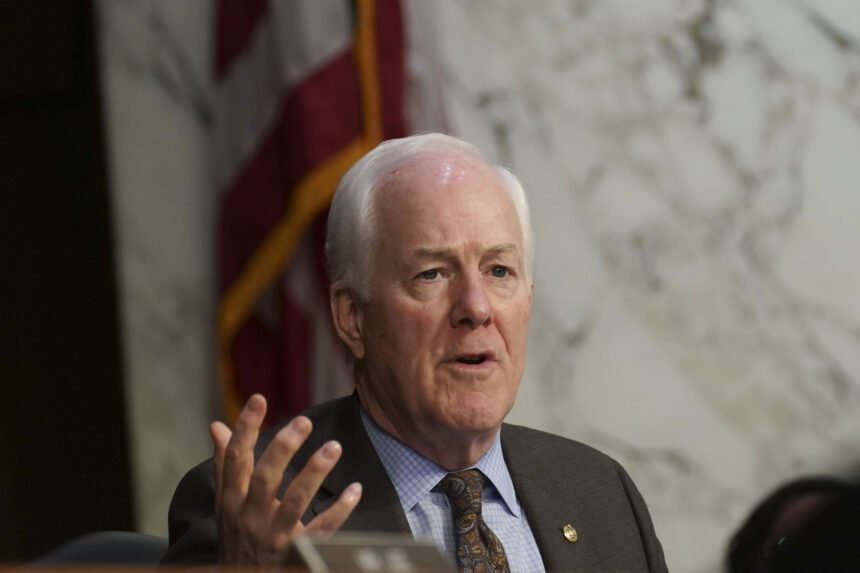Conservatives like John Cornyn who oppose Texas election lawsuit point to states’ rights

WASHINGTON, DC — President Donald Trump and 17 Republican attorneys general are supporting Texas Attorney General Ken Paxton’s audacious legal gambit at the U.S. Supreme Court to overturn the 2020 election.
But some influential Republicans are speaking out — in the states, on Capitol Hill and at the Supreme Court — opposing the effort, highlighting states’ rights and arguing that election rules are not decided on the federal level.
Utah Republican Gov. Gary Herbert on Wednesday said he is unhappy he was not consulted before the state’s attorney general, also a Republican, signed an amicus brief supporting the Texas effort.
“We don’t know what his motivation is,” Herbert said in a statement with Gov-elect Spencer Cox, the Deseret News reported. “Just as we would not want other states challenging Utah’s election results, we do not think we should intervene in other states’ elections. This is an unwise use of taxpayers’ money.”
GOP Rep. Chip Roy of Texas posted in a Twitter thread that he will not be joining in the amicus brief with other Republican members of Congress “because I believe the case itself represents a dangerous violation of federalism & sets a precedent to have one state asking federal courts to police the voting procedures of other states.”
Texas Sen. John Cornyn, a Republican who supports Trump, told CNN that he is struggling “to understand the legal theory” behind the lawsuit.
“Number 1,” Cornyn said, “why would a state — even such a great state as Texas — have a say-so on how other states administer their elections?”
Longtime GOP lawyer Benjamin Ginsberg lambasted the legal filings, charging that they go against core Republican principles meant to protect states’ rights.
“I can’t imagine something that is less faithful to the principle of states’ rights than a Texas attorney general trying to tell other states how to run their elections,” Ginsberg said.
In addition, conservative and those who have worked in Republican administrations, including lawyer Carter Phillips and John Danforth, who are close friends with Justices Samuel Alito and Clarence Thomas, respectively, have filed a brief in the case arguing that Paxton’s positions “make a mockery of federalism and separation of powers.”
They told the justices that it “would violate the most fundamental constitutional principles for this Court to serve as the trial court for presidential election disputes.”
Both sides point to the “electors clause” of the Constitution that says “Each State shall appoint, in such Manner as the Legislature thereof may direct, a Number of Electors …”
In his filing with the court Wednesday, Trump argues the clause makes clear “that only the legislatures of the States are permitted to determine the rules for appointing presidential electors.” Echoing arguments made by Texas, he says that that Georgia, Michigan, Pennsylvania and Wisconsin used Covid-19 as an excuse to gut safeguards through “non legislative actions.”
But in their brief, Phillips and Danforth stress that such an interpretation turns the electors clause on its head and that that the clause makes clear that a presidential election cannot boil down to a controversy between states.
They argue that the Constitution and the law authorizes states to handle election procedures. To that end, Texas has no authority to question how the other states conducted their elections.
In legalese, this is how they put it: “Pursuant to the electors clause and 3 usc 5 state legislatures have made state courts the tribunals for presidential election disputes.”
In other words: Supreme Court, stay out of this one.
